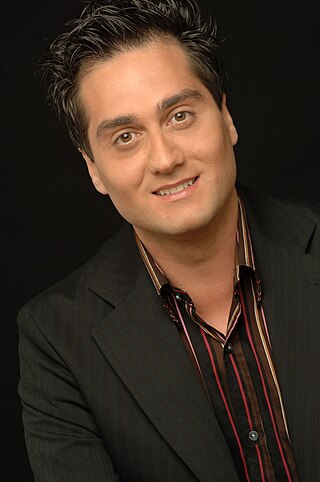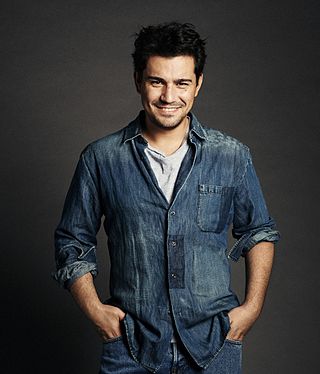

Tito Schipa (Italian pronunciation: [ˈskiːpa] ; born Raffaele Attilio Amedeo Schipa; 2 January 1889 in Lecce –16 December 1965) was an Italian tenor.


Tito Schipa (Italian pronunciation: [ˈskiːpa] ; born Raffaele Attilio Amedeo Schipa; 2 January 1889 in Lecce –16 December 1965) was an Italian tenor.

Schipa was born as Raffaele Attilio Amedeo Schipa on 27 December 1888 in Lecce in Apulia into an Arbëreshë family; [1] his birthday was recorded as January 2, 1889 for military conscription purposes. [2] He studied in Milan and made his operatic debut at age 21 in 1910 at Vercelli. He subsequently appeared throughout Italy and in Buenos Aires, Argentina. In 1917, he created the role of Ruggiero in Puccini's La rondine .
In 1919, Schipa traveled to the United States, joining the Chicago Opera Company. He remained with the Chicago company until 1932, whereupon he appeared at the New York Metropolitan Opera from 1932 to 1935, and again in 1941. He also sang at the San Francisco Opera, beginning in 1924.
From 1929 to 1949 he performed regularly in Italy, including at La Scala, Milan and the Rome Opera. He returned to Buenos Aires to sing in 1954. In 1957, he toured the Soviet Union.
Schipa's artistry is preserved on film. In 1929, he appeared in two Vitaphone movie shorts, singing "M'appari" from Flotow's opera Martha and "Una furtiva lagrima" from Donizetti's L'elisir d'amore .
Schipa's stage repertoire, which in his early career had encompassed a wide range of Verdi and Puccini roles, eventually contracted to about 20 congenial Italian and French operatic roles, including Massenet's Werther , Donizetti's L'elisir d'amore and Cilea's L'arlesiana . In concert, Schipa performed a preferred array of lyrical operatic arias and songs, including Neapolitan and Spanish popular songs.
Schipa made numerous recordings of arias and songs during his career, beginning in Italy in 1913. His recorded output included a famous 78-rpm set of Donizetti's Don Pasquale , made in 1932. This is still available on CD. He also recorded several tangos, some of which were composed by him in Spanish, mostly in Buenos Aires and New York. Thanks to his early Latin American tours, Schipa was a very popular tenor in Latin America.
Like his contemporary Richard Tauber, Tito Schipa was also a conductor. Although a few contemporary critics considered Schipa's voice to be small in size, restricted in range and slightly husky in timbre, he was still extremely popular with the public. Michael Scott (The Record of Singing: 1978), while admiring Schipa's charm and taste, points out that it is not correct to say that Schipa was a master of bel canto; indeed Scott and others regard Schipa's recording of "Il mio tesoro" from Mozart's Don Giovanni as one of the worst ever made, with sloppy runs and sketchy ornamentation.
Yet his performance of the entire aria during a Metropolitan Opera broadcast of Don Giovanni on January 20, 1934, as well as surviving fragments from a “live” New Orleans performance of the opera in 1935, show him in superb form. "Although the quality of one or two of Mr. Schipa's top notes was rather tenuous," New York critic Francis D. Perkins wrote in the Herald Tribune in January 1934, “the style and phrasing of his aria was usually artistic and well schooled.”
On July 18, 1919, he was initiated to the Scottish Rite Freemasonry [3] [4] [5] in the Lodge Espartana of Buenos Aires. [6] In 1939, Tito Schipa declined an invitation from Italian-American groups to perform 12 concerts in order to raise money for the Anti-Fascist movement in Italy. Although he was offered $1,000 for each appearance, Schipa refused and is quoted in his letter, dated February 23, 1939, [7] "I am sorry that I cannot sing for Loubet; but you MUST understand my situation; and my relationship with Achille Starace in Italy and all authorities there. And you know the purpose of the benefit for which Loubet asks me to sing for. Not tell anybody the reason; tell that I cannot come to New York or some other excuse; but don't ask me the impossible".
Schipa sang his final performance at the Metropolitan Opera in 1941 before returning to Fascist Italy, "where he was a pet of the Benito Mussolini regime", an association he would never really live down; after returning to the United States, his first post war concert was poorly attended but when he came out of retirement one last time in 1962, Town Hall was jammed. [8] In 1958, Schipa retired from the operatic stage to teach voice, initially in Budapest. He returned to New York for one last concert performance in 1962; Town Hall was full to overflowing. [9] Schipa died of complications from diabetes on December 16, 1965 at the age of 77 in Manhattan, New York City, while teaching there.
He was a National Patron of Delta Omicron, an international professional music fraternity. [10]
His son Tito Schipa Jr. is a composer, singer-songwriter, producer, writer and actor. [11]

Luciano Pavarotti was an Italian operatic tenor who during the late part of his career crossed over into popular music, eventually becoming one of the most acclaimed tenors of all time. He made numerous recordings of complete operas and individual arias, gaining worldwide fame for his tone, and gaining the nickname "King of the High Cs".

L'elisir d'amore is a melodramma giocoso in two acts by the Italian composer Gaetano Donizetti. Felice Romani wrote the Italian libretto, after Eugène Scribe's libretto for Daniel Auber's Le philtre (1831). The opera premiered on 12 May 1832 at the Teatro della Canobbiana in Milan.

Luis Ernesto Alva y Talledo, better known as Luigi Alva is a Peruvian operatic tenor. A Mozart and Rossini specialist, Alva achieved fame with roles such as Don Ottavio, Count Almaviva and Fenton. He retired from the stage in 1989.

Giuseppe Di Stefano was an Italian operatic tenor who sang professionally from the mid-1940s until the early 1990s. Called "Pippo" by both fans and friends, he was known as the "Golden Voice" or "The Most Beautiful Voice", as the true successor of Beniamino Gigli. Luciano Pavarotti said he modeled himself after Di Stefano. In an interview Pavarotti said "Di Stefano is my idol. There is a solar voice...It was the most incredible, open voice you could hear. The musicality of Di Stefano is as natural and beautiful as the voice is phenomenal". Di Stefano was also the tenor who most inspired José Carreras. He died on 3 March 2008 as a result of injuries from an attack by unknown assailants.

Rolando Villazón Mauleón is a Mexican operatic tenor, stage director, author, radio and television personality and artistic director. He now lives in France, and in 2007 received his French citizenship.

Juan Diego Flórez is a Peruvian operatic tenor, particularly known for his roles in bel canto operas. On June 4, 2007, he received his country's highest decoration, the Knight Grand Cross in the Order of the Sun of Peru.
Giuseppe Sabbatini is a lyric tenor, conductor, and double-bassist.

Marcelo Raúl Álvarez is an Argentine lyric tenor who achieved international success starting in the mid-1990s.

Ramón Vargas is a Mexican operatic tenor. Since his debut in the early '90s, he has developed to become one of the most acclaimed tenors of the 21st century. Known for his most expressive and agile lyric tenor voice, he is especially successful in the bel canto repertoire.

Ferruccio Tagliavini was an Italian operatic lyric tenor mainly active in the 1940s and 1950s. Tagliavini was hailed as the heir apparent to Tito Schipa and Beniamino Gigli in the lyric-opera repertory due to the exceptional beauty of his voice, but he did not sustain his great early promise across the full span of his career.

Cesare Valletti was an Italian operatic tenor, one of the leading tenore di grazia of the postwar era.
"Una furtiva lagrima" is the romanza from act 2, scene 8 of the Italian opera L'elisir d'amore by Gaetano Donizetti. It is sung by Nemorino (tenor) when it appears that the love potion he bought to win the heart of his dream lady, Adina, is working. He loves Adina, but she is not interested in an innocent, rustic man such as he. To win her heart, he buys a love potion with all the money he has in his pocket. It is actually a cheap red wine sold by a traveling quack doctor—but when he sees Adina weeping, he assumes the "elixir" has worked and she has fallen in love with him.
Antonio Laudino Carangelo is an Italian operatic tenor.

Giacinto Prandelli was an Italian operatic tenor, particularly associated with the Italian and French repertoires.

On the Old Spanish Trail is a 1947 American Trucolor Western film starring Roy Rogers and directed by William Witney.

Giuseppe Borgatti was an Italian dramatic tenor with an outstanding voice. The creator of the title role in Umberto Giordano's verismo opera Andrea Chénier, he subsequently earned renown for his performances of the music of Richard Wagner, becoming in 1904 the first Italian tenor to appear at the Bayreuth Festival. He sang a variety of leading roles at La Scala, Milan, from 1896 until 1914, but deteriorating eyesight caused by glaucoma put a premature end to his stage career, after which he turned successfully to teaching.

Giuseppe Filianoti is an Italian lyric tenor from Reggio Calabria.

Saimir Pirgu is an Albanian international opera singer (tenor). In 2014 he was awarded the Italian citizenship by the President of the Italian Republic Giorgio Napolitano.
Ugo Benelli is an Italian operatic tenor. Born in Genoa and trained at La Scala, Benelli had an international career singing leading tenore di grazia roles from the early 1960s through the 1980s. In his later years he sang character roles and began a career as a singing teacher. He retired from the stage in 2004.

Amelia Felle is an Italian operatic soprano and voice teacher. Born in Bari, she has been active on the stages of Italian and European opera houses and concert halls since her debut in 1981. She holds the chair in vocal chamber music at the Conservatorio di Santa Cecilia in Rome, a position she previously held at the Conservatorio Tito Schipa in Lecce.